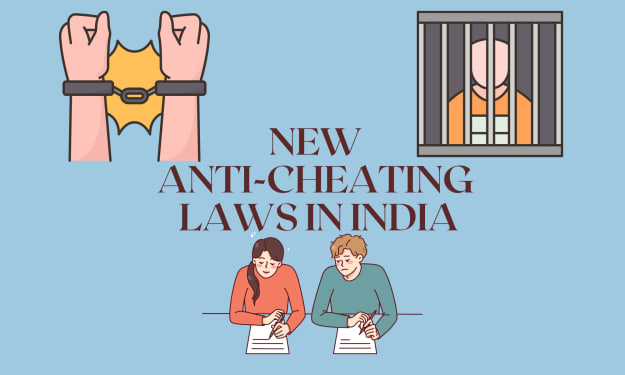Networking for Indie Artists: Building Connections for Success
For indie artists, networking is a critical component of success in the music industry.

For indie artists, networking is a critical component of success in the music industry. Without the backing of major record labels, networking for indie artists must rely on their ability to forge meaningful connections. Effective networking can lead to collaborations, performance opportunities, mentorship, and industry insights that can propel an indie artist's career forward. This article will explore various strategies for networking, both online and offline, to help indie artists build a robust network that supports their career growth. We'll also highlight how to leverage technology and social media to enhance your networking efforts.
The Role of Networking in an Indie Artist’s Career
Networking allows indie artists to connect with industry professionals, fellow musicians, and fans. These connections can lead to collaborations, gigs, and invaluable advice, making networking a cornerstone of an indie artist’s career.
Key Benefits of Networking:
Opportunities: Many gigs, collaborations, and music features come from word-of-mouth and personal recommendations.
Knowledge: Networking provides access to industry insights, trends, and advice from experienced professionals.
Support System: Building relationships with other artists and professionals creates a support network that can offer encouragement and assistance.
Online Networking Strategies
The digital age has revolutionized networking, providing indie artists with numerous platforms to connect with others. Here are some effective online networking strategies:
1. Utilize Social Media:
Social media platforms like Instagram, Twitter, and Facebook are essential for connecting with fans and industry professionals. Regularly post updates, share content, and engage with your audience.
Instagram: Share behind-the-scenes content, snippets of new music, and engage with followers through Stories and live sessions. Use relevant hashtags to increase visibility. Engage with other artists and influencers by commenting on their posts and collaborating on content.
Twitter: Join conversations about music industry trends, participate in Twitter chats, and share your music using popular hashtags. Engage with followers by responding to comments and retweeting relevant content. Follow industry professionals and participate in discussions to increase your reach.
Facebook: Create a dedicated page for your music, join music-related groups, and participate in discussions to expand your reach. Share regular updates, engage with followers, and use Facebook Live to connect in real-time.
2. Join Professional Networks:
Professional networks like LinkedIn are invaluable for connecting with industry professionals. Make sure your profile is up-to-date with your latest achievements and music releases. Participate in industry-specific groups and forums to share your insights and learn from others.
LinkedIn: Connect with music industry professionals, join groups focused on music and entertainment, and share articles and updates about your career. Reach out to industry professionals and request informational interviews or advice.
3. Engage in Music Communities:
Platforms like Reddit, SoundCloud, and Bandcamp offer opportunities to share your music and connect with peers. Engage in discussions and provide feedback to others.
Reddit: Join subreddits like r/WeAreTheMusicMakers and r/IndieMusicFeedback to share your music and get advice from other artists. Participate actively by commenting on other posts and sharing your insights.
SoundCloud: Follow and comment on other artists’ tracks, join groups, and share your music to build a following. Engage with listeners by responding to comments on your tracks.
Bandcamp: Engage with fans through messages and updates, and collaborate with other artists on the platform. Share your music and offer exclusive content to build a loyal fanbase.
4. Use Email Marketing:
Building an email list allows you to keep your fans informed about new releases, tours, and other updates. Regularly send out newsletters to engage with your audience and maintain a connection.
Email List: Collect email addresses at gigs, through your website, and via social media. Use email marketing platforms to create professional newsletters and track engagement.
Newsletter Content: Share exclusive content, behind-the-scenes stories, and special offers to keep your subscribers engaged. Provide valuable content to encourage fans to stay subscribed.
Offline Networking Strategies
While online networking is crucial, face-to-face interactions can be even more impactful. Here are some strategies for networking in person:
1. Attend Music Events:
Participating in local music festivals, open mics, and industry conferences is essential for meeting other artists and industry professionals.
Local Music Festivals: Attend and perform at local festivals to meet other musicians and industry professionals. These events provide opportunities for collaboration and exposure.
Open Mics: Regularly participate in open mic nights to showcase your talent and connect with other artists. Use these opportunities to build relationships with venue owners and other performers.
Industry Conferences: Attend conferences like SXSW, Music Biz, and ASCAP Experience to network with industry leaders and learn from panel discussions and workshops. These events offer valuable insights and networking opportunities.
2. Collaborate Locally:
Working with local artists, producers, and venues helps build a community. Collaborations can enhance visibility and provide mutual support.
Local Collaborations: Partner with other artists in your area to create music, perform together, and promote each other’s work. Collaborations can lead to new opportunities and broaden your audience.
Producers and Studios: Network with local producers and studios to find potential collaborators and mentors. Building relationships with producers can lead to high-quality recordings and valuable industry connections.
Venues: Build relationships with local venue owners and bookers to secure more gigs and opportunities to perform. Perform regularly at local venues to establish yourself within the community.
3. Participate in Workshops and Seminars:
Music workshops and seminars offer opportunities to learn new skills and network with like-minded individuals.
Music Workshops: Participate in workshops focused on songwriting, production, and performance to hone your skills and meet other musicians. These events provide a collaborative environment to learn and grow.
Industry Seminars: Attend seminars on music marketing, distribution, and business to gain insights and network with professionals. These events offer valuable knowledge and connections that can advance your career.
Leveraging Technology for Networking
Technology can be a powerful tool for networking. Maintain an updated website, create an email list, and use music distribution platforms to reach a broader audience. These tools can help you stay connected with your network and promote your music effectively.
1. Website:
Create a professional website that showcases your music, upcoming events, and contact information.
Website Essentials: Include a bio, discography, press kit, and a blog to keep your audience engaged. Regularly update your website with new content and news.
SEO: Optimize your website for search engines to increase visibility and attract new fans. Use relevant keywords and metadata to improve search rankings.
2. Music Distribution Platforms:
Use platforms like TuneCore, Ditto Music, and Amuse to distribute your music to major streaming services.
Distribution Strategy: Regularly release new music and promote it through your social media channels and email list. Use these platforms to reach a global audience and gain new fans.
3. Virtual Networking Events:
Participate in virtual conferences, webinars, and online meetups. These events have become increasingly popular and provide opportunities to network without geographical limitations.
Virtual Conferences: Attend online music industry conferences to learn from experts and network with attendees.
Webinars and Online Workshops: Participate in webinars and workshops to gain knowledge and connect with other musicians.
4. Collaboration Tools:
Use collaboration tools like Zoom, Google Meet, and Slack to work with other artists remotely. These tools make it easier to collaborate on projects and stay connected.
Remote Collaboration: Use video conferencing tools for songwriting sessions, recording collaborations, and virtual rehearsals.
Project Management: Use project management tools to organize collaborations and keep track of progress.
Conclusion:
Networking of indie artist is an ongoing process that requires time and effort, but the rewards are immense. By strategically building your network, you can gain valuable insights, opportunities, and support that can propel your music career forward. Remember, every connection counts, so start networking today and watch your indie music career soar. The music industry thrives on connections, and with the right approach, you can build a network that supports and sustains your artistic journey.
About the Creator
Enjoyed the story? Support the Creator.
Subscribe for free to receive all their stories in your feed. You could also pledge your support or give them a one-off tip, letting them know you appreciate their work.






Comments
There are no comments for this story
Be the first to respond and start the conversation.